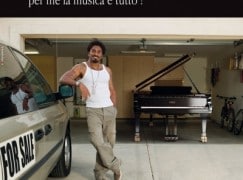Fazioli: We don’t tie you down like Steinway
mainThe Italian piano maker has lauched a social media campaign, attacking its rival’s exclusive contracts with artists.
Here’s the text:
Why does Fazioli refuse to sign exclusivity contracts with Artists?
We believe that Artists should have the freedom to choose which instrument to play, basing purely on the belief that it represents the best vehicle to express their talent. Instead of imposing any limitation, we prefer to establish reciprocal partnerships aiming to uphold artistic standards, which should always have precedence over commercial considerations.






Comments